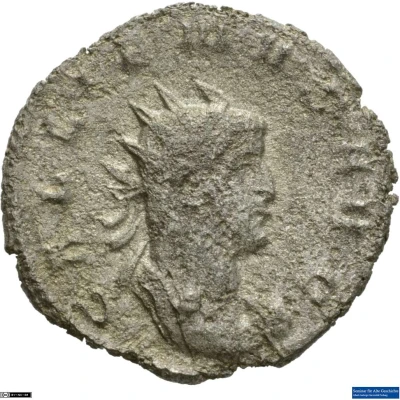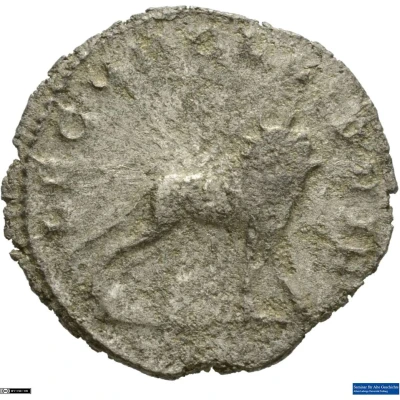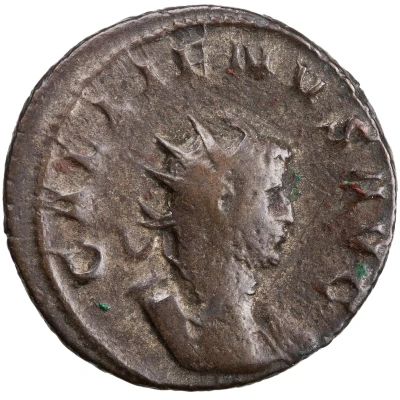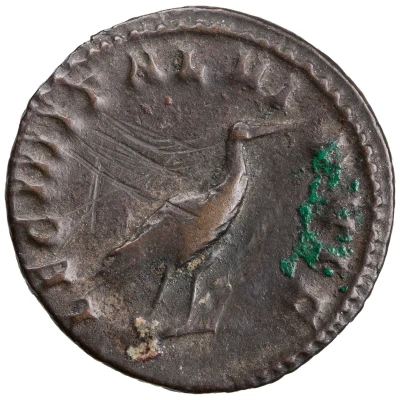


© Münzsammlung des Seminars für Alte Geschichte, Albert-Ludwigs-Universität Freiburg (CC BY-NC-SA 3.0 DE)
Antoninianus - Gallienus LEG IIII FL VI P VI F
258 year| Silver | 2.8 g | 22 mm |
| Issuer | Rome › Roman Empire (27 BC - 395 AD) |
|---|---|
| Emperor | Gallienus (Publius Licinius Egnatius Gallienus) (253-268) Valerian (Publius Licinius Valerianus) (253-260) |
| Type | Standard circulation coin |
| Year | 258 |
| Value | Antoninianus (1) |
| Currency | Antoninianus, Reform of Caracalla (AD 215 – 301) |
| Composition | Silver |
| Weight | 2.8 g |
| Diameter | 22 mm |
| Shape | Round (irregular) |
| Technique | Hammered |
| Demonetized | Yes |
| Updated | 2024-10-05 |
| Numista | N#286433 |
|---|---|
| Rarity index | 100% |
Reverse
Lion, radiate, walking right.
Script: Latin
Lettering: LEG IIII FL VI P VI F
Translation:
Legio Quarta Flavia, Sextum Pia, Sextum Fidelis.
Fourth Flavian legion, pious for the sixth time, faithful for the sixth time.
Comment
Mass varies: 2.43–3.08 g;Diameter varies: 21.98–22 mm;
Example of this type:
Münzsammlung des Seminars für Alte Geschichte, Albert-Ludwigs-Universität Freiburg
Source:
Online Coins of the Roman Empire (OCRE)
Interesting fact
The Antoninianus coin was issued during the reign of Gallienus, who was the Roman Emperor from 260 to 268 AD. During his reign, the Roman Empire was facing numerous challenges, including invasions by barbarian tribes and internal conflicts. Despite these challenges, Gallienus was able to maintain the empire's stability and issue coins like the Antoninianus, which were used for trade and commerce. The coin's design features the image of Gallienus on one side and the Roman goddess Victory on the other. The inscription "LEG IIII FL VI P VI F" stands for "Legio IIII Flavia Victrix Philippiana," which means "Flavian Victory's Fourth Legion." This inscription indicates that the coin was issued to commemorate the Fourth Legion's victory under Gallienus' leadership. Overall, the Antoninianus coin is a fascinating piece of history that provides insight into the Roman Empire's economy, military, and political landscape during the 3rd century AD.

